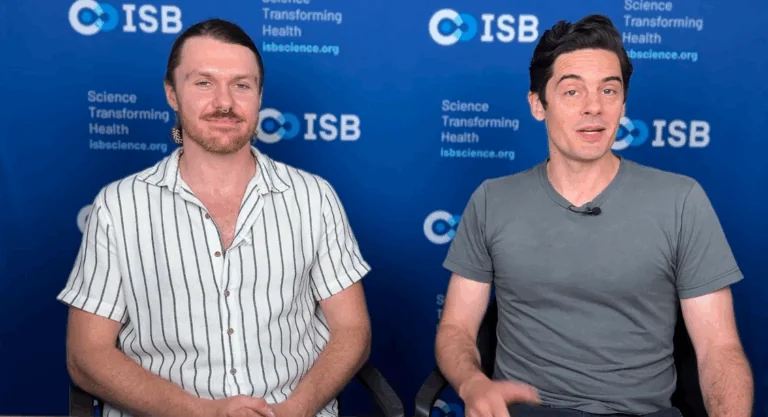A Gut Feeling: Microbes and Their Impacts on Our Minds
There has been an explosion of research into the two-way communication between the gut microbiota and the brain. This year, ISB hosted a virtual microbiome series dedicated to exploring the gut-brain axis.

The trillions of commensal (non-harmful) microbes that live in and on our bodies contain a hundredfold more unique genes than we harbor within our genomes. Recent work has shown that many of these microbial genes are essential to the proper functioning of our bodies, with almost half of all metabolites in human blood significantly associated with variation in the ecology of the gut.
This metabolic cross-talk between our microbes and our bodies extends to all organ systems, including the central nervous system. There has been an explosion of research into the two-way communication between the gut microbiota and the brain, which has helped us to understand complex behavioral and neurophysiological phenotypes in many animal species.
This year, ISB hosted a three-day microbiome-themed course (days 1 and 2) and symposium (day 3) dedicated to exploring the gut-brain axis.
You can view videos from each day below.
Day 1
Day 2
Day 3
The first session was titled Early Life: Nutrition and the Developing Brain, and included a talk by Dr. Elena Coley-O’Rourke titled “Malnutrition and the developmental gut-brain axis” and a talk by Dr. Sid Venkatesh titled “Microbiome-targeted dietary regimens to combat pediatric undernutrition.” Following the talks, Crystal Perez chaired a panel discussion.
The second session was titled Stress, Anxiety, and Depression. It included a talk by Dr. Nathaniel Ritz titled “Stress gone viral: gut bugs that can impact behavior in preclinical models” and by Dr. Hannah Holscher titled “Dietary and microbial connections to mood and cognition.” Following the talks, Jacob Cavon chaired a panel discussion.
The third session was titled Neurodegeneration and included a talk by Dr. Priyanka Baloni titled “Identifying host and microbiome-derived metabolic signatures associated with Alzheimer’s disease, and a talk by Dr. Yunguang Qiu titled “Systematic multi-omics landscape between gut microbial metabolites and GPCRome in Alzheimer’s disease. Following the talks, Dr. Noa Rappaport chaired a panel discussion.


